LEADERS IN THE MAKING
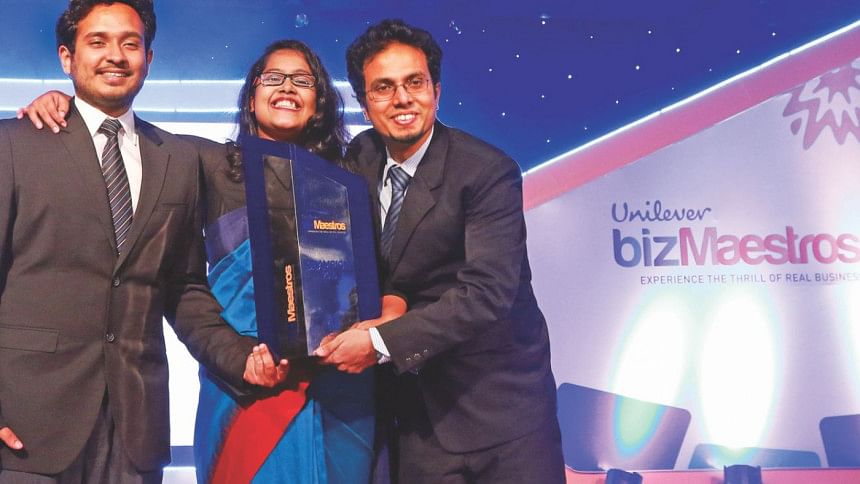
Unilever Future Leaders' League (FLL) is an annual global live case competition that brings together potential leaders and empowers bright minds from all around the world. Through the tremendously popular and competitive Unilever BizMaestros, the champions were selected to represent Bangladesh in the upcoming edition of Unilever FLL in May 2017 in London.
SHOUT met up with Team Potter from IBA, University of Dhaka, champions of the 7th Unilever BizMaestros in Bangladesh. The team members are Mastura Tasnim, Rakib Ibnay Hossain and Tanzir Islam; Naheyan Hye, Senior Brand Manager, Lux, and Ipshita Fahmin, Leadership Development Manager, also joined the conversation.
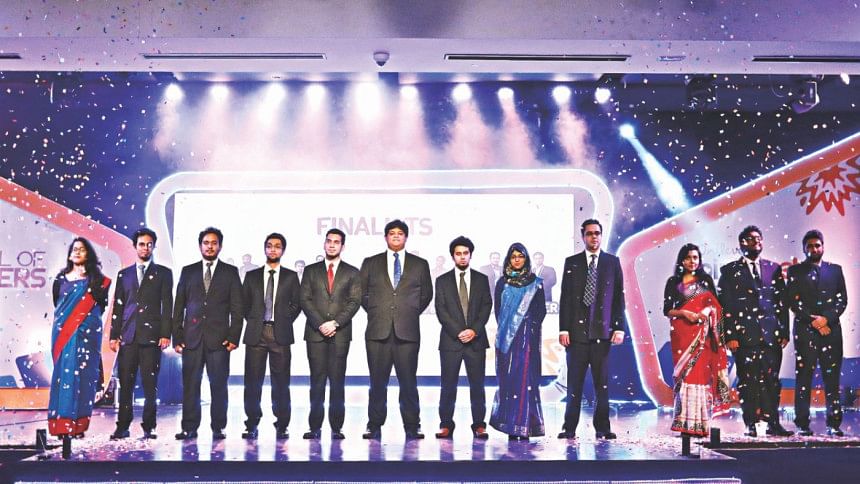
To give us an idea of what to expect from the champions, Naheyan says, "Bangladesh has been consistently doing well on the global stage and that's something we, as a team, take pride in. BizMaestros has been able to identify the top of the class students. Till date in the FLLs we participated in, we never finished below top five."
What makes BizMaestros so unique is how this business competition is structured. Of the four different stages, each filters teams to ensure only the most competent ones remain. Naheyan elaborates on this, saying, "We throw challenges to the participants that we, as brand managers, are facing on a day to day basis. On the global stage, our team faces off against students who may have relevant work experience while doing their undergrads which we lack in our country. In order to have a level playing field, we designed BizMaestros in such a way that the teams that have been through to the finals experience everything that a territory manager and brand manager experiences on a daily basis."
Mastura, when asked about the expectations entering the competition, answered, "We had heard about the previous business competitions and there was a pattern – certain activities that were repeated. When we heard the title 'Thrill of Real Business' we thought it was just a title. Going in we didn't expect the level of tasks we were assigned. We were given daunting tasks and what delighted me was how seriously we were treated."
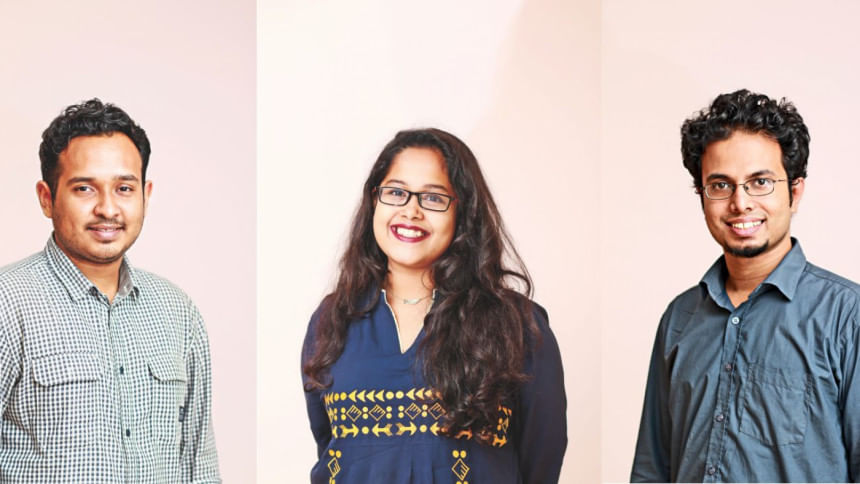
Team Potter made it as champions after surviving four demanding rounds beating 283 teams who applied. Discussing their journey from the start to the end of the grand finale shows how much effort went into it from both the competitors and the organising team.
From the 150 teams that made it to the interview round, only 22 teams were selected for the quarter finals. Rakib recalls, "We had only three minutes for the interview and there were so many teams there and only so few were to be selected. It was unnerving."
Progressing onto the next rounds, the tasks to accomplish became exponentially more difficult. "We expected to be given an activation task. Instead we were given a huge amount of information and only 6 hours to interpret these to a pricing decision for Lux. If you are a business student, you would know these are tasks for senior business leaders and brand managers. Having to do the same as students in a competition was exciting but scary as well. This gave us a reality check of what to expect in real life if we ever choose a similar career path," Mastura elaborates on the quarter finals.
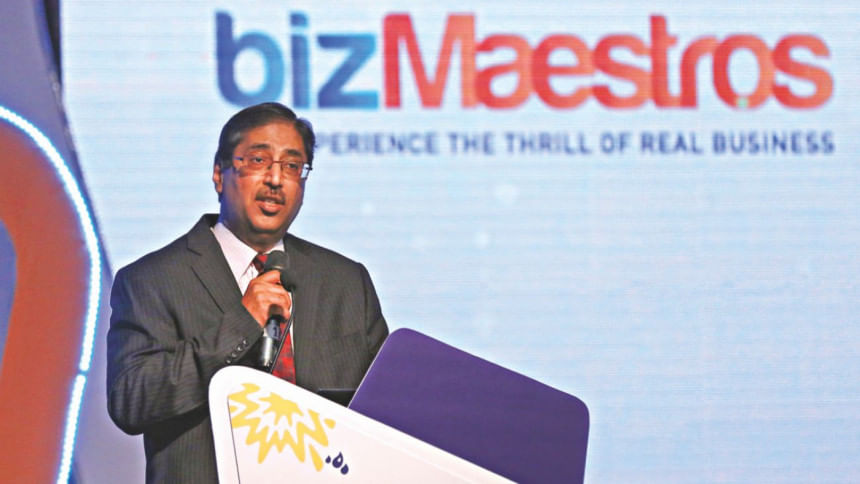
The complexity of the two following rounds was evident as it took Tanzir 20 minutes to explain the briefs they were given and how much work they had to put in. The semi-finals was a market activation stage where the teams had to analyse a cluster of stores and collect real life data of eight different parameters, create a retail profile, and create a brand roadmap strategy.
"When we were giving our presentation for the semi-finals, our judges were senior managers and people who had been working for years doing what we were for just the past few days. We were put in a position where we were in their territory; giving them answers they already knew. For our 15 minute presentation, we were grilled for 25 minutes on all the aspects we had to cover. We could see our judges were very passionate about their jobs," Tanzir explains.
On top of a very intense semi-final round during their final semester in university, there was a very minimal break before they had to jump right back into work for the final round. Rakib talks about the brief they received on promoting Lifebuoy Hand Wash, "We were told that Unilever Bangladesh has the best performance by far over the years. We were told that there is no use trying to copy models and ideas from other countries. We were told, 'We are already the best. Make it better.' Moreover, we were even given a list of things that were already tried which crossed off most of our initial ideas. We had to bring something completely innovative."
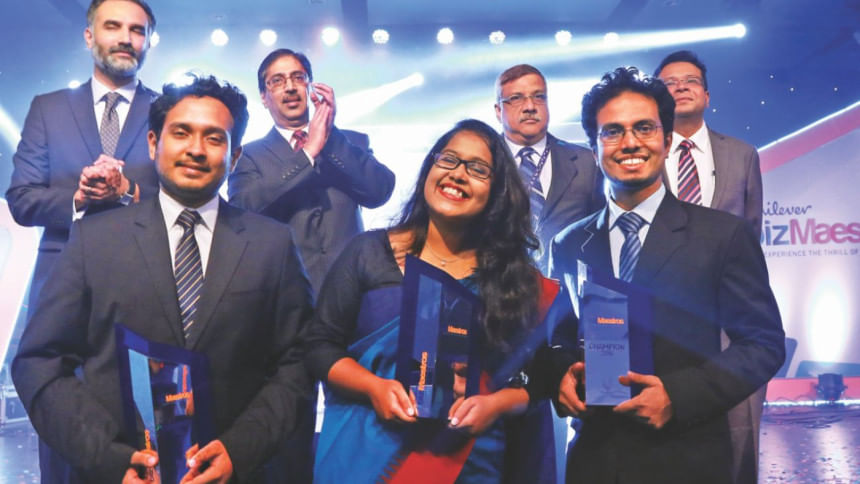
Focusing on what helped them successfully perform well and outshine the other teams in each round, Rakib says, "We are very thorough. The business competition is a replica of a real life scenario; however, we took it very seriously and always thought about whether it was practical. There's a difference between doing it for a presentation and doing it keeping in mind about possible implementation. I believe that's our edge."
"We are all very supportive of each other," Mastura says as she discusses her team's dynamics that got them this far. "Tanzir is very creative, I like to focus on how things are framed, while Rakib is extremely strategy oriented. However, we aren't limited to a particular field. We constantly give each other constructive criticism so I wouldn't segregate anyone to a certain aspect."
After walking through their journey thus far, the conversation moved on to the six months remaining until FLL. The fact that the bar has been set so high for Team Potter by the previous participants inspires them to learn more and do better. Mastura says, "There having been teams that finished in the top five, there are a lot of people who can mentor us through the process. That will be an advantage on our part."
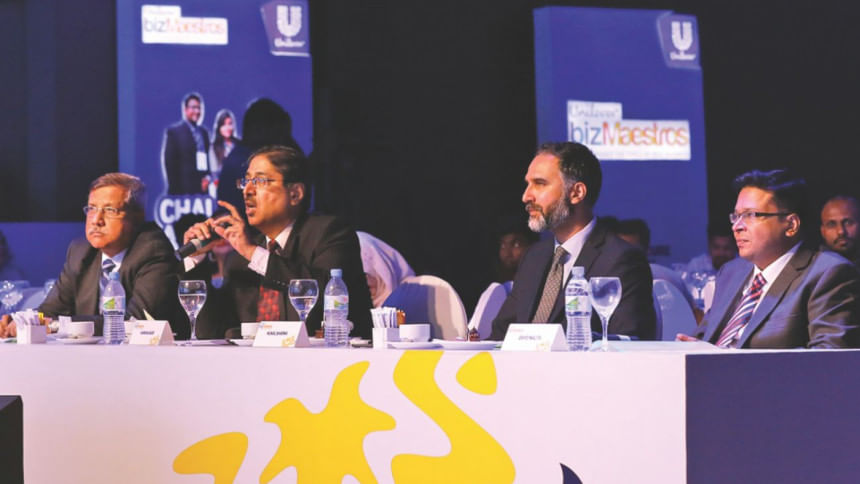
Ipshita then discusses how the team is going to be groomed over time, "First two months, we're going to be focusing on Unilever, because FLL will definitely have something relevant to the company, though, right now, we don't know exactly what it will be. We will be looking at what has been given in the past and understand the approach. We have a philosophy behind every brand and that's what we want to give them exposure to. In BizMaestros they worked on a local market and now, in FLL, they will be expanding their horizons even further. When they will get the case, they will be assigned a brand manager, and they will get exactly one month to focus on that particularly."
The team now has the opportunity to further work alongside Unilever, to which Mastura says, "We got mentoring through every stage and the awesome things is that we get to have that for six more months. We're working with people with huge amount of responsibilities and learning a lot of skills like people management and brand management – things we can't get in a classroom."
As an ending note of inspiration, Ipshita says, "As students from Bangladesh, we all have inhibitions as a small country that we don't have global acceptability of our institutions and we are looked down upon; but when you are in a platform with Ivy League graduates, MBA graduates from all around the world from the best campuses, you realise that Bangladeshi talents are just as good as anyone else and, in fact, are better than many. Unilever Future Leaders League will be about challenging the best of the world and competing with them as defending champions."
With a keen eye and a broken brain to mouth filter, Mahejabeen Hossain Nidhi has a habit of throwing obscure insults from classic novels at random people who may or may not have done anything to warrant them. Drop a line at [email protected]

 For all latest news, follow The Daily Star's Google News channel.
For all latest news, follow The Daily Star's Google News channel. 



Comments